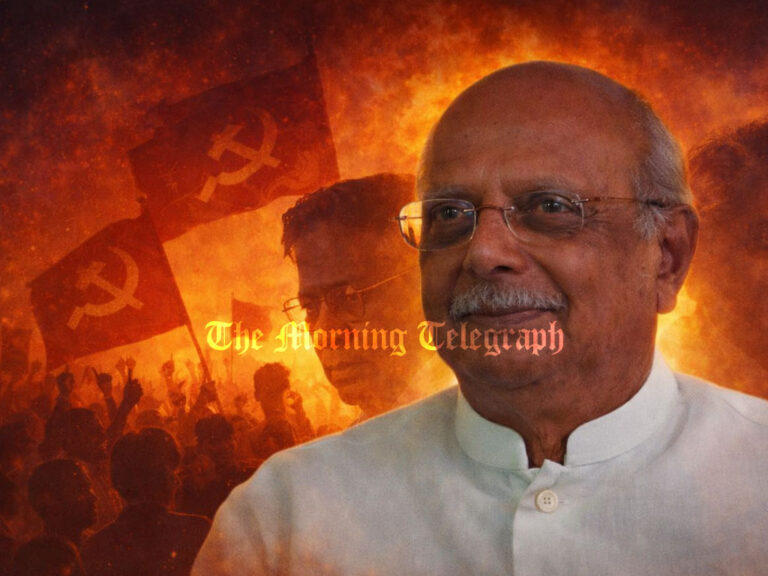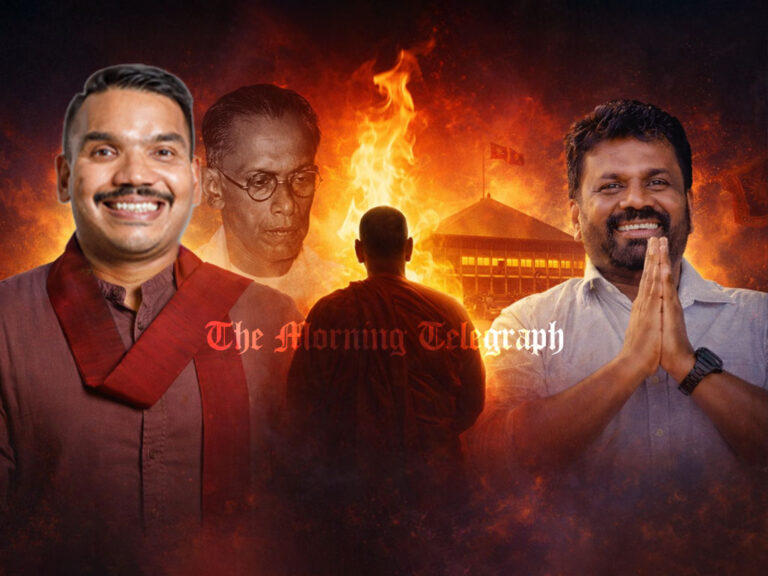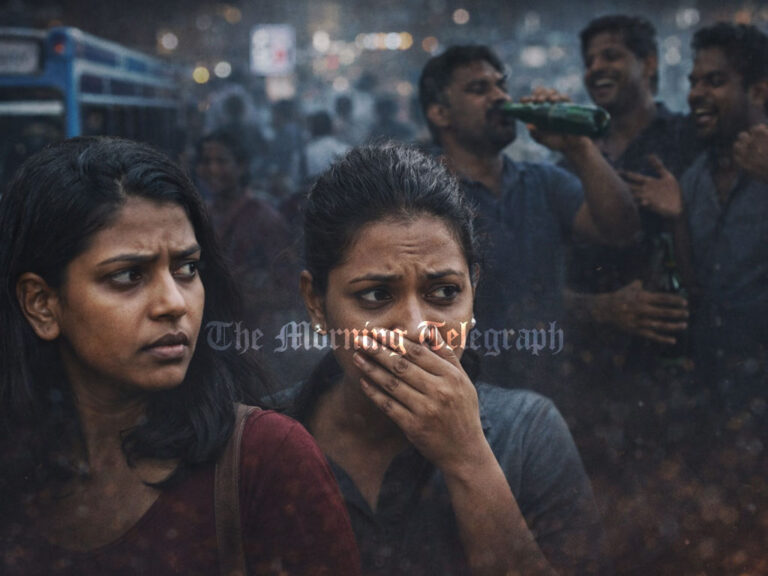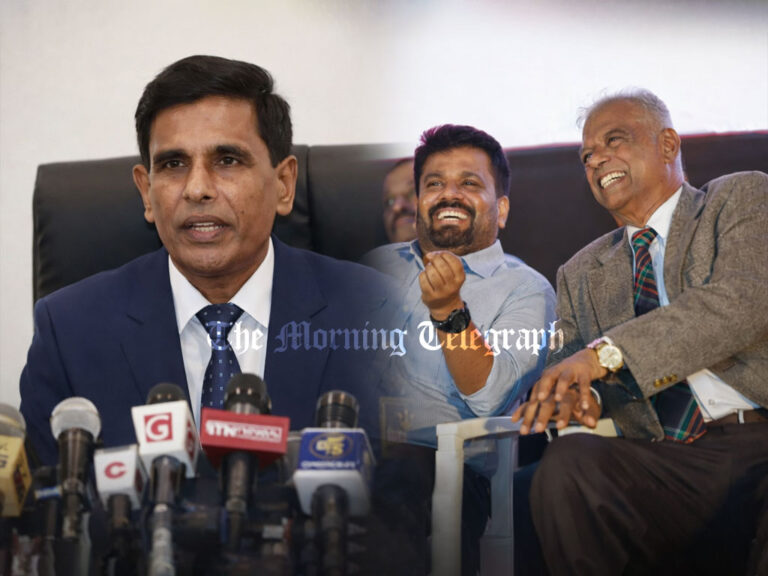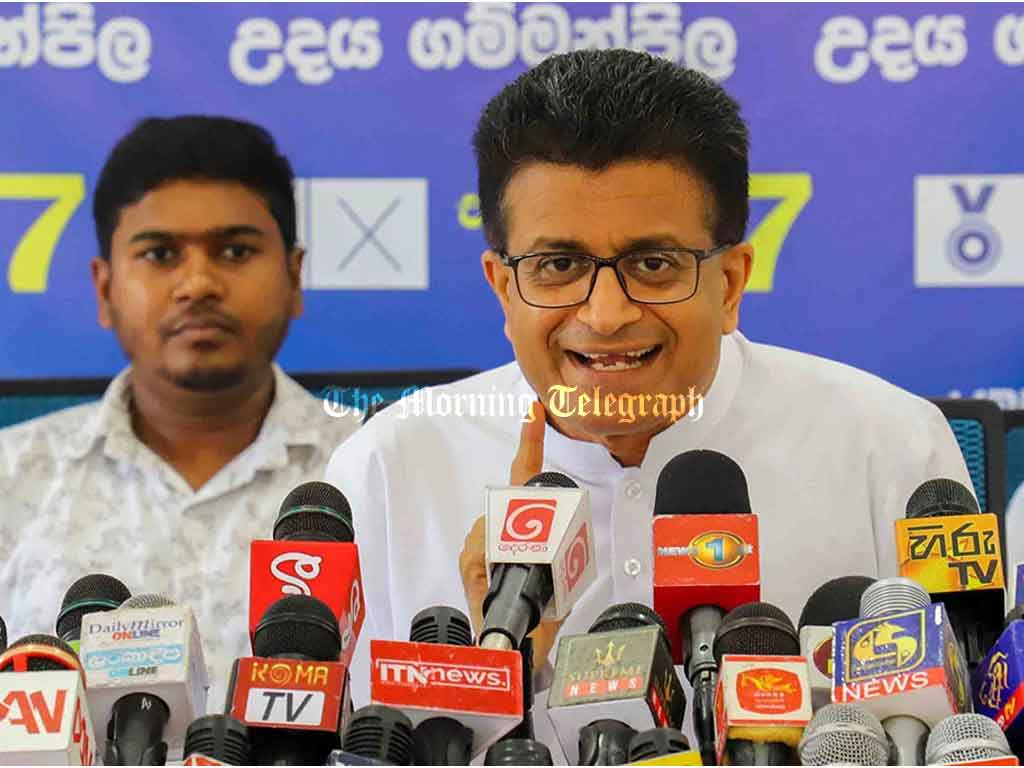
Pivithuru Hela Urumaya leader and lawyer Udaya Gammanpila claims that Sri Lanka is at risk of becoming a part of a continuous Indian territory due to the newly signed security agreement with India. He made these remarks during a press conference held in Colombo.
Gammanpila stated that Sri Lanka has entered into this security agreement with India in a manner no other post-independence leader has dared. He recalled that former Prime Ministers and Presidents such as S.W.R.D. Bandaranaike, Sirimavo Bandaranaike, J.R. Jayewardene, Mahinda Rajapaksa, and Gotabaya Rajapaksa, all had the foresight and understanding of global geopolitics and national security to avoid such agreements. Even Prime Minister Bandaranaike, he pointed out, terminated the pre-independence security agreement that allowed Britain to maintain air and naval bases in the country.
He emphasized that by 2050, the two dominant global powers would be China and India. Western powers, anticipating a growing threat from China, are aligning with India through alliances such as the Quad, which includes the US, India, Japan, and Australia. Gammanpila likened the present power dynamics to the Cold War era, when countries had to choose between aligning with the US or the Soviet Union. He argued that Sri Lanka maintained its independence then and should do the same now. In this context, signing a security pact with India, he said, signals a lack of insight into global politics and national security on the part of the current government.
He asserted that Sri Lanka would be safer and more prosperous by staying non-aligned and independent. He cited historical invasions from India—17 out of 21 over the past 2,600 years—as evidence of why caution should prevail. Referring to the Artha Shastra by Indian philosopher Kautilya, he noted, “Your neighbor is your threat. Your neighbor’s enemy is your protector.” Even from an Indian philosophical standpoint, he claimed, entering into a security agreement with India is a strategic error.
Gammanpila also accused the current leadership of aligning with the ideology of a “Greater India” or “Akhand Bharat,” promoted by the Hindu Vishwa Parishad. He pointed out that Indian Prime Minister Narendra Modi commended President Anura Dissanayake for being sensitive to India’s needs during his visit. According to Gammanpila, this vision includes the absorption of Sri Lanka into an extended Indian sphere, which is now becoming a national policy in India. He warned that entering into such a security arrangement was tantamount to “grabbing a tiger by the tail.”
He then questioned whether Minister of Health and Mass Media, Nalinda Jayatissa, had asked Prime Minister Modi about the Easter Sunday attacks during his visit to Sri Lanka. Gammanpila reminded the media that Nalinda had previously accused the Indian government of involvement in the Easter attacks and had criticized former Presidents Gotabaya Rajapaksa and Ranil Wickremesinghe for not confronting India about the suspect named Sara, the wife of a suicide bomber. He sarcastically noted that as the assigned escort minister during Modi’s visit, Nalinda had ample opportunity to raise the issue.
“If Minister Nalinda had the courage to speak previously, surely he asked Prime Minister Modi about Sara and the Easter attack?” Gammanpila asked, adding that the nation deserves to hear Modi’s response at the next Cabinet press briefing.
He continued by highlighting the contradiction in President Anura’s position. “Back then, Anura Dissanayake condemned agreements signed with India as fraudulent and labelled Modi an expansionist. Yet, during Modi’s visit, he presented him with the highest honour Sri Lanka can award to a foreigner—the Sri Lanka Mitra Vibhushana. If President Anura believed India to be our best friend all along, 83,000 lives could have been spared. Those who gave their lives in 1971 and 1987 believed they were fighting Indian expansionism. Today, the same leader who opposed India has embraced its Prime Minister,” he said.
Gammanpila then addressed the need for transparency. He compared the current government’s secrecy with his own past experience handling India-related agreements. He referenced the 2022 deal involving the oil tanks in Trincomalee, where 85 out of 99 tanks were reclaimed from Indian control. That agreement, he explained, was thoroughly vetted and discussed. Employees and trade unions were informed, public debates were held on national television, and a printed booklet was distributed to all Members of Parliament. A copy of the agreement was even uploaded to the Ministry website within hours of signing.
“This agreement was publicly debated and transparent. And yet, it was labelled a fake agreement by those in the Compass. Today, those very people have secretly signed not one but seven agreements with India. The public deserves to see them,” Gammanpila declared.
He concluded by asserting the right of the people and opposition to demand the immediate release of the texts of the newly signed agreements, claiming that those who once championed transparency have now betrayed it.

